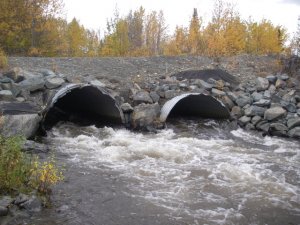NCRS Awards $3.8 million to CRWP to Improve Salmon Habitat and Reduce Flood Risk
New project funded by the Regional Conservation Partnership Program
PALMER, Alaska, June 1, 2021 – A new project in Alaska’s Copper River Watershed that aims to improve salmon habitat and reduce flood risk was recently awarded $3.8 million in federal funding from USDA’s Natural Resources Conservation Service (NRCS) via its Regional Conservation Partnership Program (RCPP).
River Watershed that aims to improve salmon habitat and reduce flood risk was recently awarded $3.8 million in federal funding from USDA’s Natural Resources Conservation Service (NRCS) via its Regional Conservation Partnership Program (RCPP).
Nationally, NRCS awarded $330 million for 85 RCPP projects this year including the Cooper River project in Alaska. RCPP projects are locally driven, public-private partnerships that work with private agricultural producers to address climate change, improve the nation’s water quality, combat drought, enhance soil health, support wildlife habitat and protect agricultural viability.
The Copper River Watershed Project will restore access to an estimated 187.5 miles of streams and 527 acres of lake habitat to sockeye, chinook and coho salmon, providing significant benefits to subsistence, sport and commercial fisheries.
In addition to benefitting salmon habitat, the project will also reduce the likelihood of severe property damage during extreme flood events, making the watershed more flood resilient and improving the structural integrity of roads and infrastructure.
The work primarily involves removing undersized culverts and replacing them with stream-smart culverts that allow fish and other aquatic species to safely pass; and planting trees and shrubs along streambanks to reduce erosion, enhance biodiversity and improve aquatic habitat.
The new stream-smart culvert designs allow debris to pass freely, require almost no maintenance, and have a longer lifespan. The improved stream crossings will ensure the stability of Copper Basin road networks which are critical to the productivity of local rural economies.
“The Regional Conservation Partnership Program is public-private partnerships working at their best,” said Alan D. McBee, NRCS State Conservationist in Alaska. “This new project will harness the power of partnerships to support the health of salmon, a subsistence resource that is the backbone of Copper River communities and bring about local solutions to combat climate change.”
“We have been working with our partners for over a decade to identify and prioritize high priority fish passage projects in the region. This investment from NRCS will provide a significant boost towards creating a barrier-free Copper River watershed, supporting the continued return of salmon in order to sustain the salmon-based cultures, communities, and economies of the region.” – Kate Morse
Specific objectives of the project are to:
- Implement up to 15 projects that increase biocomplexity on a watershed scale by improving habitat quality and restoring access to a variety of rearing and spawning habitats for salmon and other resident fish.
- Restore sediment transport, natural flow regime, and other ecological functions at a wide range of flows at target crossings for the benefit of subsistence resources like salmon.
- Complete hydrologic monitoring of streams in the Copper River Watershed to inform crossing designs. This will allow for more cost-effective design solutions and lower the potential for future crossing failures.
- Maximize restoration opportunities by coordinating between Native landowners, public agencies, and other local partners for the benefit of aquatic resources that cross multiple jurisdictions throughout their complex life cycles.
Project Partners include; U.S. Fish and Wildlife Service, Bureau of Land Management, Alaska Department of Transportation and Public Facilities, Alaska Department of Fish and Game, National Oceanic and Atmospheric Administration, USDA Natural Resources Conservation Service, Athna Inc, Chugach Alaska Corporation, Eyak Corporation, Native Village of Kluti-kaah, Alyeska Pipeline Service Co, and Native Village of Eyak.
To learn more about RCPP, visit the Alaska RCPP webpage or the National RCPP webpage. For questions about RCPP in Alaska or more information on how to submit a proposal for future RCPP funding, contact Jackie Kragel, programs specialist, at Jackie.Kragel@usda.gov or 907-761-7716.
For more information specific to the Copper River RCPP project, contact Kate Morse with the Copper River Partnership at 907-424-3334 or kate@copperriver.org.
View the national NRCS announcement detailing all 85 RCPP projects awarded this year.


